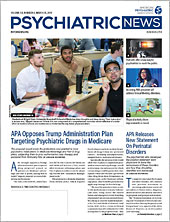Few clinical psychiatrists relish serving as expert witnesses. Forensic psychiatrists receive additional training in court testimony and may actually enjoy the process and remuneration involved; however, the majority of psychiatrists probably prefer to avoid the adversarial nature of legal disputes.
In addition to the confrontational tone of court proceedings, they are also stressful because they disrupt clinical and personal schedules, often with little advance notice. Although it is understandable that many psychiatrists want to avoid providing court testimony if possible, it may not always be ethical to do so. The following case example presents a dilemma and a solution that helps to balance a psychiatrist’s competing duties to the court (which represents society), the patient, the psychiatrist’s other patients, and the psychiatrist’s other responsibilities (to colleagues, practice group, and self).
Case Example
A patient who was involuntarily hospitalized on a certification because of catatonia and who received court-ordered ECT is discharged to a mental health center that assumes responsibility for her ongoing involuntary treatment. She continues to receive maintenance ECT from the same hospital psychiatrist and has a new outpatient psychiatrist. When it’s time to renew her certification, the court asks both the outpatient psychiatrist and the ECT psychiatrist to provide expert testimony at the hearing because the court has questions about the ongoing need for ECT and the need for continued involuntary treatment in general.
Court appearances are disruptive to everyone’s schedule, and the ECT psychiatrist communicates to the outpatient psychiatrist that he won’t be there to testify. On the one hand, the outpatient psychiatrist has met this new patient only once and feels unduly burdened since the ECT psychiatrist has known this patient longer and is more familiar with her response to ECT. On the other hand, the outpatient psychiatrist is a full-time employee of a mental health center and will be paid for his time in court, whereas the ECT psychiatrist is paid only for direct patient care. Furthermore, his hospital-based practice group is reluctant to cover for him when he makes court appearances. Both psychiatrists would have to cancel patients with short notice to attend the hearing, which may cause distress for those patients.
What Is a Physician’s Duty Regarding Expert Witness Testimony?
The section on expert witness testimony in the recently revised American College of Physicians Ethics Manual recognizes that providing this testimony is time consuming and unfamiliar, yet without it, the court may not appreciate the patient’s illness, treatment, and prognosis. Absent this information, legal decisions are made without the benefit of relevant medical understanding. The manual states, “Although physicians cannot be compelled to participate as expert witnesses, the profession as a whole has the ethical duty to assist patients and society in resolving disputes” (Annals of Internal Medicine, January 15, 2019).
How Might the ECT Psychiatrist Meet His Duty While Respecting His Other Obligations?
The ECT psychiatrist in this case has specialized knowledge of the patient that is not available to the outpatient psychiatrist. He could offer a written summary to his colleague of how the hospital’s treatment team arrived at the determination that ECT was necessary, how the patient has responded to the treatment, any complications that arose and how they were handled, the current plan for maintenance treatment, and the prognosis with and without maintenance ECT. This would facilitate the outpatient psychiatrist’s ability to respond to the court’s questions. Although it would take time to prepare this summary, it would require less time than canceling half a day to appear in court, thus causing less disruption to his clinical schedule. It would also provide valuable information and show respect for the outpatient psychiatrist, the court, and, most importantly, the patient.
Avoid Combining Roles of Expert Witness and Clinician
Except in testimony involving court-ordered treatment, psychiatrists should be careful about serving as an expert witness for their clinical patients. A patient may ask his or her treating psychiatrist to serve as an expert witness in a divorce, lawsuit, or criminal case. The patient may feel that the psychiatrist is the best person to explain his or her point of view, and the psychiatrist may feel protective and want to help advocate for the patient. What the patient may not understand is that once the psychiatrist’s veil of confidentiality is lifted, all of the psychiatrist’s knowledge about the patient is open to scrutiny. The patient can’t pick and choose what will be revealed. In most cases, it may be preferable for the patient to hire a different psychiatrist to serve as expert witness and to preserve the confidentiality and sanctity of the treatment. At the very least, the patient should be fully informed of the risks of having the psychiatrist serve in a dual role.
Serving as an expert witness may be a stressful and time-consuming process for psychiatrists who are not trained in forensics or haven’t chosen to orient their careers toward this activity. It is often preferable for psychiatrists to decline to be an expert witness in cases involving their patients, except when a case concerns involuntary treatment. In those situations, treating psychiatrists must appear in court; otherwise, the certification will be dropped. Psychiatrists must balance their duty to the patient with all other competing duties but keep in mind that the patient’s needs are primary. As with all dilemmas, consultation may be helpful to discern the best course of action. ■
The American College of Physicians Ethics Manual can be accessed
here. “Building on the American College of Physicians Ethics Manual” is available
here.

